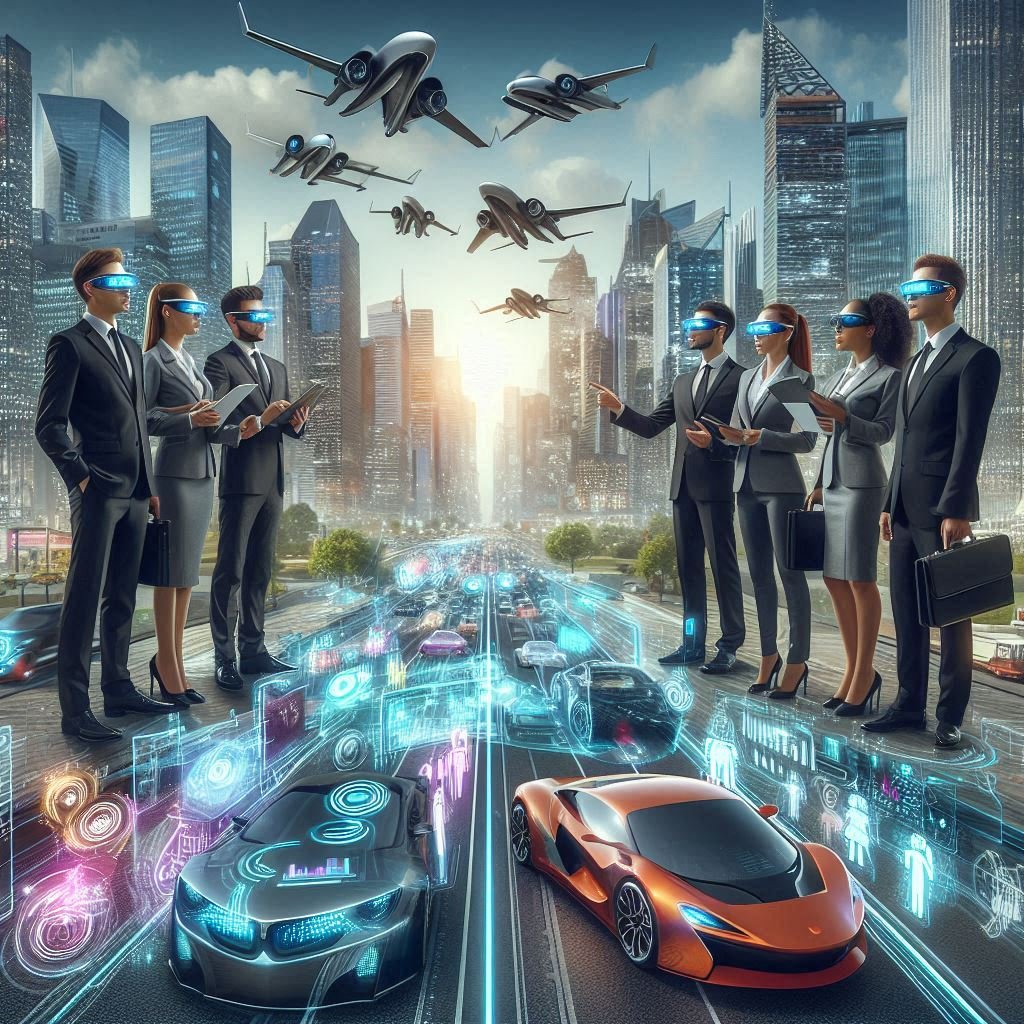Artificial Intelligence (AI) is not just a futuristic concept—it’s a powerful force that’s transforming the business landscape in the USA and around the world. From startups to global corporations, companies are increasingly adopting AI to drive innovation, improve efficiency, and gain a competitive edge. Here’s a deeper look into how AI is revolutionizing various sectors of the business world and what this means for the future.
1. AI in Customer Experience: Personalization at Scale
One of the most significant impacts of AI is in enhancing customer experience. Companies are using AI to analyze vast amounts of data to understand customer behavior and preferences. This allows businesses to offer personalized recommendations, targeted marketing, and improved customer support. For example, AI-powered chatbots are becoming a standard feature on websites, providing instant responses to customer inquiries and helping businesses operate 24/7.
Major retailers like Amazon and Walmart are leveraging AI to optimize their product recommendations, driving higher sales and improving customer satisfaction. AI’s ability to process and analyze data far exceeds human capabilities, enabling businesses to deliver personalized experiences at scale.
2. AI in Operations: Streamlining Efficiency
AI is also being used to streamline operations and reduce costs. Manufacturing companies are integrating AI into their production lines to improve efficiency and reduce downtime. Predictive maintenance, powered by AI, allows companies to identify potential equipment failures before they occur, minimizing disruptions and extending the lifespan of machinery.
In logistics, AI is optimizing supply chain management by predicting demand, managing inventory, and improving delivery routes. Companies like FedEx and UPS are using AI to enhance their logistics operations, ensuring timely deliveries and reducing operational costs.
3. AI in Finance: Risk Management and Fraud Detection
The financial sector is one of the early adopters of AI, using it for everything from customer service to risk management. AI algorithms can analyze market trends, identify investment opportunities, and manage portfolios with precision. Additionally, AI is being used to detect fraudulent activities by analyzing transaction patterns and flagging suspicious behavior.
Banks and financial institutions are also using AI to streamline compliance processes, reducing the risk of regulatory breaches and improving overall security. The use of AI in finance is not only enhancing efficiency but also improving the accuracy and reliability of financial services.
4. AI in Healthcare: Revolutionizing Patient Care
The healthcare industry is witnessing a significant transformation due to AI. From diagnostics to treatment plans, AI is helping doctors make more informed decisions. AI-powered imaging tools can analyze medical images with greater accuracy, leading to earlier detection of diseases like cancer.
In addition to diagnostics, AI is being used to develop personalized treatment plans based on a patient’s genetic makeup and medical history. This approach is paving the way for precision medicine, which promises more effective and tailored treatments for patients.
5. AI Ethics and Challenges
While AI offers immense potential, it also raises ethical concerns. Issues such as data privacy, algorithmic bias, and the potential for job displacement are significant challenges that need to be addressed. Businesses adopting AI must consider these ethical implications and ensure they are using AI responsibly.
Moreover, the rapid pace of AI development requires companies to invest in continuous learning and upskilling their workforce. As AI takes over routine tasks, there is a growing need for workers to develop new skills and adapt to the changing job market.
6. The Future of AI in Business
The AI revolution is still in its early stages, and its potential is vast. As AI continues to evolve, we can expect even more innovative applications across various sectors. Businesses that embrace AI and invest in its development are likely to lead the way in the coming years.
Resources for Further Reading:
- Harvard Business Review – Articles on how AI is transforming business strategy and operations.
- MIT Technology Review – Insights into the latest AI technologies and their implications for business.
- Forbes – Coverage on AI trends, applications, and industry impact.
- McKinsey & Company – Reports on the economic and societal impact of AI.
Staying informed about the AI revolution is essential for anyone involved in the business world. By understanding the latest trends and developments, businesses can position themselves to thrive in this new era of innovation.
Share this content:

